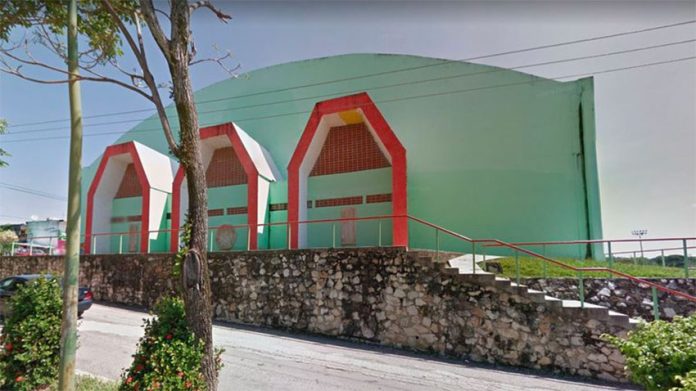The municipal sports facility is the home stadium of the Guacamayas (The Macaws), owned by López Obrador’s brother, Pío López Obrador.
The president said the stadium’s upgrade is nothing unusual, just one of the many public works projects requested by municipal governments. They are projects that the government is funding across the country to repair and upgrade municipal sports centers, part of a goal to allow Mexicans to take better care of their health.
“It’s to make sure that there are enough fields for soccer, basketball, all the sports, including baseball,” López Obrador said at this morning’s press conference. “It’s about health, about taking care of our nutrition, not eating junk food, and exercising, doing sports. We have talked about this many times.”
The project came under the spotlight earlier this month when an antigraft group reported that the Ministry of Agrarian Development and Urban Planning had awarded a Tuxtla-Gutiérrez construction company, which has won other government contracts in the past, the contract to upgrade the stadium after 26 other bids were disqualified.
The other bids were rejected because they didn’t meet the established criteria, government officials said. One of the bids was 33 million pesos cheaper than the winning bid, and another was 12.5 million pesos cheaper.
Pio López Obrador will not benefit directly from the awarding of the contract, although his team’s fortunes will likely improve due to the construction of team dugouts and dressing rooms, new grandstands and boxes, commercial spaces and public washrooms, as well as improvements to the playing surface and lighting.
The president said that the implications of corruption or cronyism in the Palenque stadium project were due to “slanderers” who claimed that the federal government must have selected the stadium only because his brother was involved.
“It’s a remodeling of a public sports facility — and not just in Palenque but all over the country. Close to 80 public sports facilities have been rehabilitated.”
As an example, he reminded reporters that the federal government has funded other stadium projects, such as two stadiums in Sonora — in Hermosillo and Obregón. The federal government bought the two baseball stadiums from the Sonora government to help it overcome an economic shortfall affecting government worker pensions, a deal that helped an opposing-party governor.
“The governor proposed to us that instead of selling [the stadiums] to private owners who would build shopping centers, why not have the [federal] government acquire them?”
However, López Obrador drew heavy criticism for those purchases, in which the federal government shelled out just over 1 billion pesos to buy the facilities, which will be converted into baseball schools for regular middle school and high school classes, in addition to training would-be major league stars.
The president’s proclaimed favorite sport is baseball. In the run-up to his election in 2018, he was seen practicing with his brother’s team.
Source: Reforma (sp)
